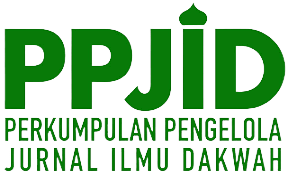Raḍā’ah in Islamic Psychological Perspective
DOI:
https://doi.org/10.18196/jicc.v1i1.10Keywords:
Rada'ah, Breast Milk, Psychology, IslamAbstract
This paper studied Islam & Psychology’s view of the concept of raḍā’ah, which has been proven to provide many benefits. There are 28 verses in the Qur’an that discuss raḍā’ah. In general, this is seen as a natural female activity with children. Accordingly, the command for mothers to breastfeed their children is stated in surah Al-Baqarah (2) Verse 233. Similarly, Surah At-Talaq (65) verse 6 also explains the importance of breastfeeding, which, even if forced to be breastfed by others, is allowed by giving money to the breastfeeding mother. ASI (breast milk) is the best food that contains all the nutrients needed by 0 - 6 months old babies. It directly affects the baby's growth, including mental and emotional development, through the bonding between mother and child when breastfeeding. Lack of attachment between mother and baby may lead to mental-emotional disorders that hinder the child’s development. Breast milk contains immunological substances. Packaged milk actually contains bacteria as a result of processing and packaging that can be harmful to a baby’s health. Breastfeeding also increases children’s intelligence courtesy of the nutritional content of breast milk, the direct method of giving from the mother's touch to the baby, as well as the duration of breastfeeding.
References
Abdullah, A. H. A. S. (1993). Keutamaan Air Susu Ibu. Fikahati Aneska.
Afiyanti, Y. (2003). Persepsi Menjadi Ibu yang Baik. Jurnal Keperawatan Indonesia, 7(2), 54 - 60.
Al Jaziry, A. Kitab al Fiqh ‘A la al Mazahib al Arba’ah, Juz IV. Dar al Fikr, t.th.
Al Mufadhal, A. Q. A. H. (2004). Mufradat al Fadz al-Qur’an. Dar al Kutb al Ilmiyah.
Annisa, L., & Swastiningsih, N. (2015). Dukungan Sosial dan Dampak Yang Dirasakan Oleh Ibu Menyusui Dari Suami. Jurnal Empathy Fakultas Psikologi, 3(1), 16 – 22.
Anshori, M. (2010). Nilai - nilai Edukatif Penyusuan Bayi dalam Perspektif al Qur’an dan al Hadis. [Undergraduate Thesis Program Studi Pendidikan Islam]. Universitas Muhammadiyah Yogyakarta.
Forster, Della, A., et al. (2006). Factors associated with breastfeeding at six months postpartum in a group of Australian women. Journal of International Breastfeeding, 1(18), 1 - 12.
Hanafi, Y. (2012). Peningkatan Kecerdasan Anak Melalui Pemberian ASI Dalam al Quran. Mutawâtir : Jurnal Keilmuan Tafsir Hadis, 2(1), 27 – 45.
Hasni, Y. (2010). Menyusui adalah Perintah Agama. Wawasan – Wawancara dengan Utami Roesli, Ketua Umum Sentra Laktasi Indonesia (Selasi). Republika Online. Retrieved August 4, 2010 from https://ftp.unpad.ac.id/koran/republika/2010-08-04/republika_2010-08-04_018.pdf.
Hidayatullah. (2018). Syariat Menyusui Dalam al Qur’an - Kajian Surat al Baqarah, ayat 233. Jurnal Jurnal At-Tibyan, 3(1), 56 – 68.
Huang, Ya-Yi, et al. (2009). Factor’s related to maternal perception of milk supply while in the hospital. Journal of Nursing Research, 17(3), 179 - 188.
Inge, W., et al. (2012). Kekuatan Psikologis Ibu untuk Menyusui - Women’s Psychological Strengths in Breastfeeding. Jurnal Kesmas - Jurnal Kesehatan Masyarakat Nasional, 7(2), 57 – 62.
Juanita, F., & Suratmi. (2016). Peningkatan Durasi Pemberian ASI Pada Ibu Post Partum Melalui Relaksasi Autogenic Training. Jurnal Keperawatan Indonesia, 19(1), 24 - 32.
Kartono, K. (1995). Psikologi Anak – Psikologi Perkembangan. Mandar Maju.
Kim, M. K., & Choi, J. W. (2020). Associations between breastfeeding and cognitive function in children from early childhood to school age: a prospective birth cohort study. International Breastfeeding Journal, 4(1), 1 – 9.
Lamongankab.go.id. (2013). ASI Ekslusif, Apakah Itu dan Apakah Manfaatnya ?. Retrieved May 30, 2013 from http://lamongankab.go.id/instansi/dinkes/asi-eksklusif-apakah-itudan-apakah-manfaatnya.
Maloko, T. (2013). Al Rada‘ah sebagai Alat Kontrasepsi Perspektif Hukum Islam. Alauddin University Press, Cetakan ke 1.
Munawwir, A. W. (1997). Kamus al Munir Arab - Indonesia Terlengkap, Edisi Ke 2. Pustaka Progressif.
Nurwahyudi, M. I. (2017). Konsep Rada’ah dalam al Qur’an – Kajian Tafsir Tematik Ayat – Ayat Tentang Menyusui Bayi dalam Perspektif Mufassir dan Sains. Jurnal QOF, 1(2), 103 – 116.
Peraturan Bersama Menteri Negara Pemberdayaan Perempuan, Menteri Tenaga Kerja dan Transmigrasi, dan Menteri Kesehatan Nomor 48/MEN.PP/XII/2008, PER.27/MEN/XII/2008, dan 1177/MEN KES/PB/XII/2008 tahun 2008 tentang Peningkatan Pemberian Air Susu Ibu Selama Waktu Kerja di Tempat Kerja.
Prabasiwi, Adila, et al. (2015). ASI Eksklusif dan Persepsi Ketidakcukupan ASI - Exclusive Breastfeeding and Perception of Insufficient Milk Supply. Jurnal Kesehatan Masyarakat Nasional, 9(1), 282 – 287.
Sandhi, Ayyu, et al. (2020). The relationship between perceived milk supply and exclusive breastfeeding during the first six months postpartum: a cross-sectional study. International Breastfeeding Journal, 15(1), 1 – 11.
Sari, N. (2016). Reaktualisasi Konsep Raḍā’ah Di Indonesia (Berdasarkan Studi Hermeneutika Qs. Al Baqarah [2] : 233). Jurnal Studi Agama dan Masyarakat, 12(1), 15 – 34.
Sari, P. N. (2015). Meningkatkan Kesuksesan Program ASI Eksklusif Pada Ibu Bekerja Sebagai Upaya Pencapaian MDGs. Jurnal Kesehatan Masyarakat Andalas, Fakultas Kesehatan Masyarakat Universitas Andalas, 9(2), 3 - 97.
Setyarini, Any, et al. (2015). Pengaruh pemberian asi eksklusif dan non eksklusif terhadap mental emosional anak usia 3 - 4 tahun. Jurnal Gizi Indonesia, 4(1), 16 – 21.
Shihab, M. Q. (2011). Tafsir Al-Misbah: Pesan, Kesan dan Keserassian Alquran, Volume 1. Lentera Hati, Cetakan ke 4.
Siregar, M. A. (2004). Pemberian Asi Ekslusif dan Faktor - faktor yang Mempengaruhinya. Universitas Sumatera Utara.
Sunardi. (2008). Ayah, Beri Aku Asi. Aqamedika.
Suryani. (2017). Rada’ah dalam Perspektif Filosofis, Normatif, Yuridis, Psikologis, Sosiologis, Ekonomis. Jurnal Syi’ar, 17(2), 93 – 102.
Umam, C. (1994). Agama Menjawab Tentang Berbagai Masalah Abad Modern. Ampel Suci.
Utari, Puji, A., et al. (2013). Pengetahuan Gizi, Keluhan Kesehatan, Kondisi Psikologis dan Pola Pemberian ASI Ibu Postpartum - Nutritional Knowledge, Health Complaints, Psychological Condition, and Breastfeeding Patterns on Postpartum Mothers. Jurnal Gizi dan Pangan, 8(3), 187 - 192.
Yunus, M. (1989). Kamus Arab – Indonesia. Mahmud Yunus Wadzuryah.
Additional Files
Published
How to Cite
Issue
Section
Categories
License
Journal of Islamic Communication and Counseling is currently licensed under a Creative Commons Attribution-ShareAlike 4.0 International (CC BY-SA 4.0)





